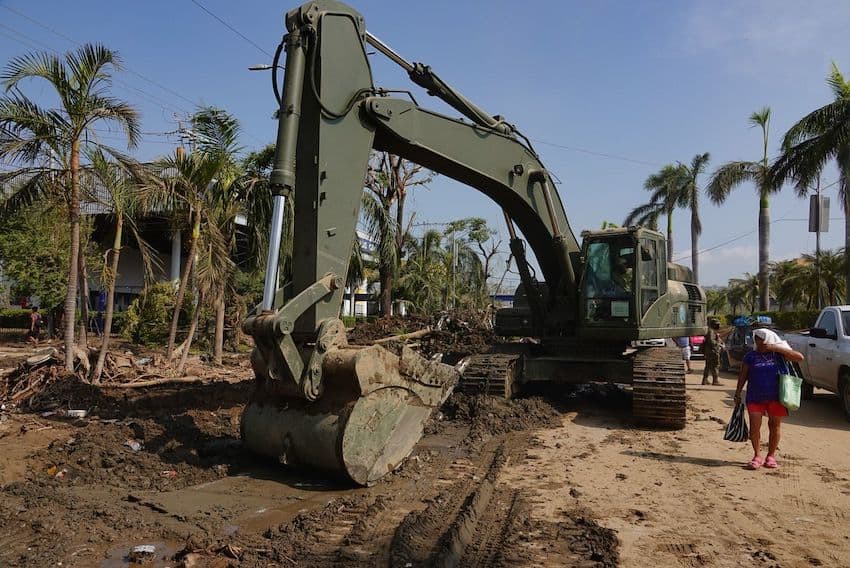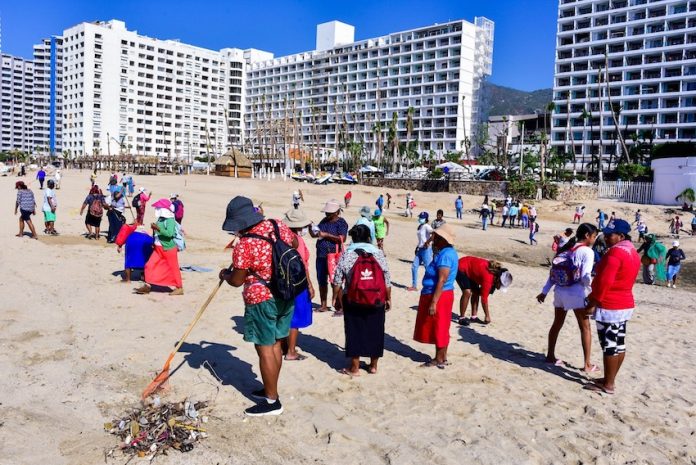Over a month after Category 5 Hurricane Otis hit Acapulco, Guerrero, residents are facing a challenging holiday season, traditionally the busiest tourism period of the year.
Reports by magazine Proceso show mud and debris still littering the streets of the Pacific resort town, where residents have already collected more than 200,000 tonnes of waste. Much of the city still lacks running water, and some business leaders believe the reconstruction of the local economy could extend until 2025.

Local business owners have shown remarkable resilience, with some bars and restaurants tentatively reopening as soon as 12 days after the disaster. However, with around 80% of the city’s hotels damaged, residents fear for their livelihoods in the tourism-dependent city.
“Acapulco lives on only three seasons: December, which is the biggest for us, Holy Week (Easter vacation) and a little bit of summer,” said Jesús Zamora, president of Infrastructure of the region’s Tourism Advisory Council. “December is the most anticipated and we are not going to get back up [in time].”
The Mexican Association of Insurance Institutions (AMIS) estimates that insurance claims have been made on at least 1,983 commercial assets, with damages totaling around 7.5 billion pesos (US $431 million). AMIS has also received 4,607 home insurance claims between Acapulco and neighboring Coyuca, amounting to 6.3 billion pesos (US $363 million) of damages. The group estimates there could be as many as 16,000 damaged insured properties in Acapulco alone.
This would make Hurricane Otis “seventh in the [nation’s] top ten major events affecting the insurance industry [for claims],” according to AMIS general director, Norma Alicia Rosas Rodríguez.

Even this is only a fraction of the hurricane’s toll, given that only 22% of homes have voluntary or mortgage-linked insurance across Mexico, and Guerrero’s figure is below the national average. The Mexican government has calculated that 274,000 homes were affected by Otis.
In the morning press conference following his seventh visit to Acapulco since the disaster, President López Obrador announced that 32,000 transfers of 8,000 pesos (US $460) had been delivered to local families to support the cleanup operation. He said these deliveries would continue over the coming days, reaching a total of 250,000 families.
“We are returning to normality, little by little,” he said, stressing that Acapulco’s water supply is gradually being repaired, and electricity supply is now 100% – although usage is only 68% of its previous levels, given that the city’s hotel sector remains closed.
AMLO also insisted that the search continues for 31 people still missing, after families protested that authorities seemed to have given up on finding their loved ones. While the official death toll of Hurricane Otis is 50 people, local news agencies have claimed that the actual figure could be up to seven times higher.
With reports from Sin Embargo, Proceso and Milenio
